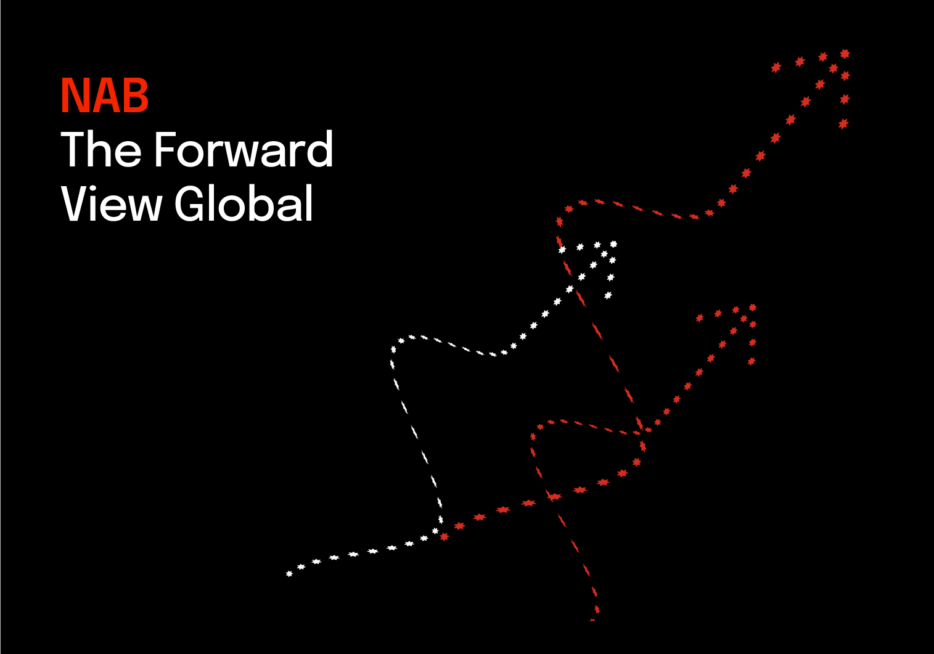Global growth headed for a H2 trough as tariffs start to bite


Insight
Conditions rise but confidence, orders remain low
Our podcast series to accompany the NAB Monthly Business Survey continues, giving you a 10 minute summary of the key survey developments this month. Listen now.
If listening on a mobile device, click listen in browser.
Business conditions rose in February, with the survey signalling the economy remained resilient in the new year and inflation is still a challenge despite slowing growth. Trading conditions and profitability lifted in the month, pushing business conditions back above their long-run average – though conditions softened further in retail and construction, sectors that are particularly exposed to the ongoing impact of tighter monetary policy. Despite the signs of resilience, confidence and forward orders both eased to remain mired at low levels, and capacity utilisation also eased. Businesses continued to report elevated rates of cost growth across both labour and materials inputs, and with activity holding up it appears firms still have scope to pass some costs through to consumers. Retail price growth, in particular, rose sharply to 1.4% in quarterly terms after slowing over the Christmas/New Year period, in a sign that further progress on inflation is unlikely to be smooth over the months ahead.
Business conditions rose 3pts to +10 index points, to be back marginally above the long-run average. Trading conditions and profitability both rose 4pts, while the employment index was broadly steady.
“There was an improvement in business conditions in February, taking conditions back above their long-run average,” said NAB Chief Economist Alan Oster. “The improvement was led by trading conditions and profitability and unwinds some of the easing we’ve seen in conditions since late 2023 – but it is really too early to say if this is just a temporary lift or the beginning of a more meaningful turnaround.”
“The story at an industry level is really quite mixed with some sectors still very strong and others under a lot of pressure,” said Mr Oster. “Conditions look very robust in some of the services sectors such as transport, recreation & personal services and finance, business & property. On the other hand, retail and construction both look fairly weak, which reflects direct exposure to the high level of interest rates.” Business confidence fell 1pt to 0 index points, remaining below average. Forward orders fell 1pt to -3 index points, with retail remaining deeply negative (-29index points). Capex rose 4pts to +7 index points, while capacity utilisation eased slightly, to 83.4%.
“Confidence remains quite weak, as do forward orders, with retail a long way underwater on both fronts,” said Mr Oster. “The softness in these more forward-looking indicators says that firms really are still quite concerned about the outlook for the economy in the near-term.”
Labour cost growth remained at 2.0% in quarterly equivalent terms, while purchase cost growth was also steady at 1.8%. Product price growth picked up to 1.3% in quarterly equivalent terms (from 1.1%). Retail price growth rose to 1.4% (from 0.9%), while recreation & personal services prices grew at 1.3% (from 1.1%).
“Cost pressures clearly remain elevated for businesses and it appears there is still some scope for firms to pass this through to output prices,” said Mr Oster. “The jump in retail price growth in February reverses some of the easing seen over the Christmas/New Year sales period and gives some pause for thought given we had expected to see the goods side of the inflation equation keep improving.”
“Ultimately, these results are a good reminder that a lot of the progress on inflation to date has been driven by the improvement in the global supply environment and from here, the improvement is unlikely to be linear,” said Mr Oster. “While we do expect inflation to return to the RBA’s target band in 2025, plenty of risks remain that could throw us off that course. That is why we expect the RBA to take a cautious approach with rates to be on hold for most of this year.”
For more information, please see the NAB Monthly Business Survey (February 2024)
© National Australia Bank Limited. ABN 12 004 044 937 AFSL and Australian Credit Licence 230686.